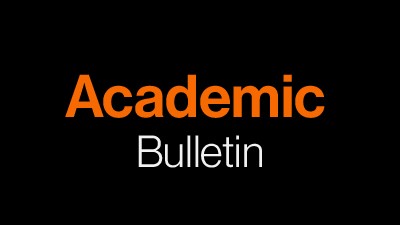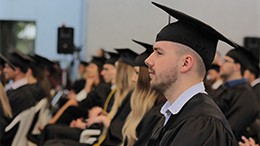A conversation with our Alumna on International Women’s Day
Gender equality is an important issue in Kosovo as in many other countries around the world. Despite important progress made in recent years, challenges persist for the equal participation and representation especially for women. This International Women’s Day, RIT Kosovo (A.U.K) Alumna, Dafina Prekazi (BS ’13), Program Manager at Kosovar Gender Studies Center (KGSC) spoke to us about current obstacles that our society faces in achieving gender equality as well as some recommendations how these can be overcome.
Q: Please tell us briefly about the work that you do.
A: I work at KGSC which is an NGO that was established in 2003. KGSC aims to integrate gender-sensitive analysis, programs, and policies in all sectors of Kosovar society. And it does so by increasing gender awareness and a focus on gender issues, developing gender studies and ensuring the inclusion of gender-sensitive policies through research, policy development, advocacy and lobbying. At KGSC, I manage its three programmatic areas which are: developing gender studies, awareness raising, and advocacy making and monitoring. I am also directly involved in analyzing and monitoring the gender perspective inclusion in EU accession processes that Kosovo is currently undergoing.
Q: What has motivated you to work in this particular field?
A: When it comes to working in the field of gender equality and advancing the rights of marginalized groups in Kosovo, I am primarily motivated by a deep passion for social justice. I believe that everyone deserves to be treated equally and to have their basic human rights respected, and I am driven to help create a more equitable society especially for women. Additionally, I feel a strong sense of responsibility to use my skills and resources to help those who are most marginalized. For me, working in this field reflects deeply held values, and it is an opportunity to make a real impact and create lasting change.
Q: What is International Women’s Day and how it is usually marked in our country?
A: International Women's Day is marked and celebrated in different ways in Kosovo. Some use this day to recognize the economic, social, cultural, and political achievements of women, as well as to raise awareness about the ongoing struggles for gender equality. Whereas others including us activists, mark this day by organizing and attending public demonstrations, rallies, and marches with the aim to raise awareness about women's most pressing violations of rights and advocate for gender equality.
Q: How has the marking of this day evolved throughout the years in Kosovo?
A: The marking of International Women's Day has evolved throughout the years in Kosovo, reflecting changes in the political and social landscape of the country. During 1990s, International Women's Day was celebrated in a more traditional way, with flower-giving and other gestures of appreciation towards women and specifically mothers. However, during the war and its aftermath, the focus shifted to addressing the specific needs and challenges faced by women in conflict situations, such as sexual violence and displacement. Throughout the last decade, women's rights activists and feminist organizations in Kosovo began using International Women's Day as a platform to advocate for gender equality and women's rights more broadly. This included raising awareness about issues such as, domestic violence, equal pay, and women's participation in politics and decision-making.
Q: What are some of the challenges that women in our country face to have an equal representation and participation in our society?
A: Women in Kosovo face a number of challenges when it comes to achieving equal representation and participation in society. Some of these challenges include:
- Economic empowerment: Women in Kosovo are less likely to participate in the labor force than men, and when they do, they often face discrimination and lower pay. This makes it more difficult for women to achieve economic independence and security.
- Gender-based violence: Women in Kosovo are at risk of experiencing domestic violence, sexual violence, and other forms of gender-based violence. This can have a negative impact on their physical and mental health, as well as limit their ability to participate fully in society.
- Social and discriminatory norms: Traditional gender roles and stereotypes can limit women's opportunities and influence in society. For example, women may be expected to prioritize their role as a caregiver over pursuing education or career opportunities.
Overall, these and other challenges can make it difficult for women in Kosovo to achieve equal representation and participation in society, and highlight the need for continued efforts to promote gender equality and women's empowerment.
Q: What is the role of education in improving the current position of women in our society?
A: Kosovo has made significant progress in promoting gender equality, but there is still a long way to go to achieve full gender parity. Access to education for girls and women is one of the key factors that can help bridge this gap. Firstly, education provides women with the knowledge and skills needed to participate fully in the economic, social, and political spheres of society. It helps to provide them with the knowledge and skills they need to succeed in all aspects of life, and empowers them to become agents of change in their communities. But most importantly, education can help to reduce gender-based violence and discrimination against women as women who are educated are more aware of their rights and are better equipped to assert them. Therefore, it is essential that efforts are made to ensure that girls and women in Kosovo have equal access to education.
Q: Gender equality in Kosovo in numbers. What are some of the important data of your research that you may want to share with us?
A: I am going to provide you with some of the most concerning statistics that we received during 2022 related to gender equality in Kosovo:
- Only 17% of women own property in Kosovo, and only 4% of women inherit property.
- During 2022 there were 2471 cases of gender-based violence and domestic violence cases reported to the police.
- Out of 616,023 women of working age in 2021, the employment rate for women was around 16%, while over 43% for men. The situation remained the same in 2022 as well.
- Early marriage remains a significant problem in Kosovo and specifically widespread among minority communities. Approximately 10% of girls in Kosovo are married before the age of 18, and 2% are married before the age of 15.
These statistics and data demonstrate that although significant progress has been made towards achieving gender equality in Kosovo specifically from a legal framework point of view, there is still much work to be done to address the challenges faced by women in the country.
Q: What are your main suggestions/recommendations for gender equality to be improved in our country?
A: There are a lot of things that need to be changed in Kosovo in order for gender equality to be achieved and I want to highlight the most important ones. First and foremost, the society and specifically the youth need to focus on eliminating traditional norms gender stereotypes as they can perpetuate gender inequality in Kosovo. The traditional norms that women are naturally born as caregivers puts women in a more disfavored position compared to men leaving them far behind in all the aspects and levels including employment, property rights and political participation. Secondly, women face significant barriers to accessing economic opportunities in Kosovo and providing support for entrepreneurship, access to finance, and vocational training can help to promote women's economic empowerment.
Q: How do you see the role of RIT Kosovo (A.U.K) in supporting gender equality in our country?
A: I believe that RIT Kosovo (A.U.K) is committed to promoting gender equality and empowering women in Kosovo. The institution has implemented various initiatives and programs aimed at supporting women's education and leadership. For example, RIT Kosovo (A.U.K) has a Women Entrepreneurship Week, which provides mentorship, networking opportunities, and leadership to students. Furthermore, the institution offers various academic programs and courses that address issues related to gender equality, such as anthropology, critical thinking and many other economics and public policy courses. Personally, I think that these classes were very important in increasing my awareness and understanding of gender issues, and equipping me with the knowledge and skills to advocate for gender equality in my chosen career.
Q: Any finals thoughts for our current students and alumni.
A: There are many ways that current students and alumni can promote gender equality, both on and off campus. Here are some of my suggestions that I think the students should employ in their everyday lives:
- Educate yourself: The first step in promoting gender equality is to educate yourself on the topic. Read books, articles, and watch documentaries that highlight the importance of gender equality and the impact of gender inequality on society.
- Speak up: Use your voice to speak up against gender inequality. This can be as simple as calling out sexist jokes or comments, or as complex as organizing a rally or protest to raise awareness about an issue.
- Be an ally: Being an ally means advocating for gender equality, even if you are not directly affected by the issue. You can be an ally by listening to and supporting those who are affected by gender inequality, and amplifying their voices.
- Mentor and empower others: If you are in a position of power or influence, use your platform to mentor and empower others. This can mean mentoring younger students or colleagues, or advocating for policies and initiatives that promote gender equality. Believe me that by taking these small but very important steps and actions the current students and alumni can make a significant impact on the lives of most marginalized groups in their communities and beyond.













